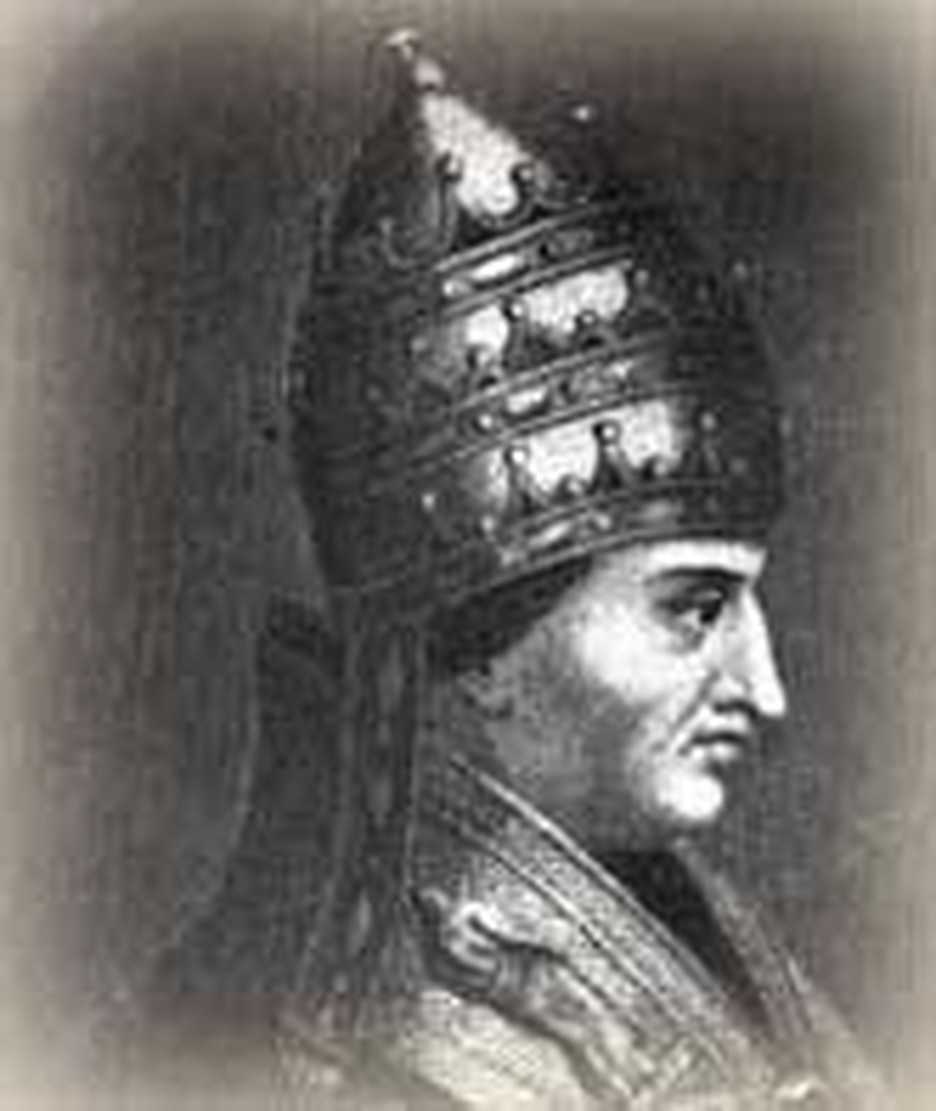
A crusader was recalled from the Middle east to become Pope Gregory X. His name was Tedaldo Visconti of Piacenza and he left his fellow crusaders, quoting a psalm to them: "If ever I forget thee, Jerusalem, let my right hand be forgotten." (psalm xx:xx) Two years after his election in 1271 he announced that a church council would meet at Lyons the following year. Under Roman numbering, this is the fourteenth ecumenical (entire church) council.
Everyone who knew Gregory fully expected that he would emphasize the ongoing attempt to retake the Middle east from Islam. But Gregory was also keen on restoring unity between the churches of the east (Orthodox) and the church of the west (Roman), which had broken two centuries earlier.
Hundreds of bishops, cardinals, abbots and lower-ranking clergymen flocked to Lyons. Spain, Germany, Italy, France and England sent large delegations. Representatives from the Greek (Orthodox) churches also appeared (a month after the meetings started). In addition, smaller states and religious orders sent delegates.
Flanked by Cardinals on his left and right, Gregory opened the council with a sermon on this day, Monday, May 7, 1274. He quoted Christ's words to his disciples at the Last Supper: "With desire I have desired to eat this Passover with you." The council had three purposes. Perhaps the one closest to his heart was relieving Jerusalem which was under Muslim control. "We must march to the rescue of the Holy Sepulcher," he said. He also called for reunion with the Greeks, and reform of church morals.
The Greek delegates accepted some Roman teachings that they had rejected before then: the pope's claims to be head of the church, the doctrine of purgatory, seven sacraments, and a disputed wording in the creed. Afterward, the two parties celebrated mass together in the Roman form. Gregory's cheeks were bathed with tears of joy. In the end, none of this mattered, because when the Greeks returned east, the overwhelming majority of Orthodox clergymen and laity indignantly rejected the agreement. It had been a political maneuver, not a spiritual movement.
Gregory also arranged financing for another crusade. Unknown to him, Acre, the last crusader stronghold in Palestine had already fallen to a Muslim attack. Consequently, this arrangement also came to nothing. In the same way, efforts to take advantage of friendly overtures by the Mongols failed. The distance was too great for effective mission work.
However, the council did achieve one success. The cardinals had been deadlocked for three years before the election of Pope Gregory X. In fact, they had finally only made a decision because the common people stripped the roof off their meeting place, exposing them to the elements. The council agreed from now on to lock cardinals in until they made a decision and to restrict their income and diet. All of this should force them to take quicker action in the future. After eleven days of deadlock, for example, they would be allowed only bread, wine, and water.
Bibliography:
- Deedy, John G. The Catholic Fact Book. Chicago, Illinois: T. More Press, 1986.
- Jedin, Hubert. Ecumenical Councils of the Catholic Church. New York: Herder and Herder, 1960.
- Raab, Clement. The Twenty Ecumenical Councils of the Catholic Church. Westminster, Maryland: Newman Press, 1959.
Last updated July, 2007

.jpg)
